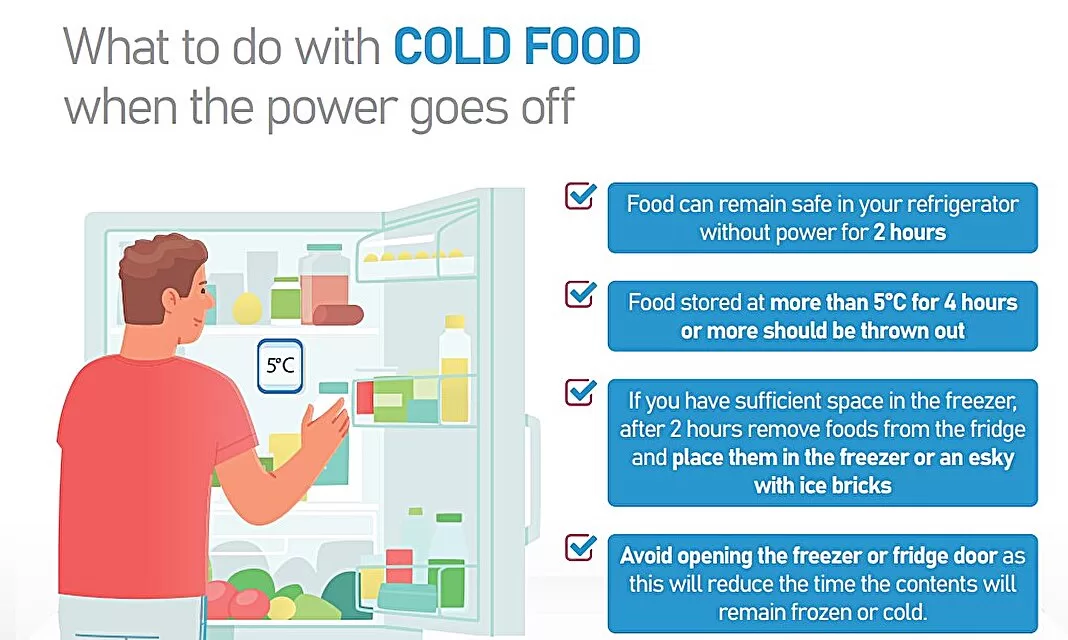The Food Safety Information Council has issued crucial advice for consumers on how to keep food safe during power outages, especially as extreme weather events like cyclones, floods, and bushfires become more frequent.
Dr. Scott Crerar, Chair of the Council, stated that the organization has received a growing number of consumer inquiries about food safety during emergencies.
“Our thoughts go out to those affected by recent natural disasters. While we work with ABC Emergency to share food safety messages during such crises, we strongly encourage Australians to be prepared ahead of time,” Dr. Crerar said.
Essential Food Safety Tips During a Power Outage:
- Check the time: Food in the refrigerator remains safe for up to two hours without power. If the outage lasts between two and four hours, consume the food immediately. If it extends beyond four hours, discard the food to avoid health risks.
- Limit fridge and freezer openings: Keep doors closed unless necessary. After two hours, check the food temperature with a thermometer or transfer perishable items to the freezer if possible.
- Utilize your freezer: A fully stocked freezer at minus 18°C or below can maintain safe temperatures for up to 48 hours if the door remains closed. A half-full freezer can preserve food for approximately 24 hours.
- Use coolers effectively: Store frozen gel packs or bricks in your freezer for emergencies. Transfer perishable items like meat, poultry, dairy, and ready-to-eat foods to a cooler with evenly distributed frozen packs.
- Some foods remain safe: Items like salted butter, margarine, hard cheeses (cheddar), and acidic or sugary products such as jams, sauces, pickles, and olives can be safely stored at room temperature.
- Be cautious with cooked food: If cooking was interrupted due to a power failure, discard the food if it cannot be completed within two hours. Properly cooked food should be consumed within two hours or thrown out.
Dr. Crerar further emphasized that if there is any uncertainty about how long food has been without power or at what temperature it has been stored, discarding it is the safest option.
“Re-cooking food will not necessarily eliminate the risk of foodborne illness, as some bacteria produce toxins that survive cooking temperatures,” he explained.
The Food Safety Information Council urges everyone to download their informative poster on food safety during power outages to keep this guidance readily available.
Disclaimer:
This article is based on recommendations from the Food Safety Information Council. Individuals should consult local health authorities or food safety experts for specific concerns. The information provided is for general awareness and should not replace professional advice.
Provided by Food Safety Information Council












